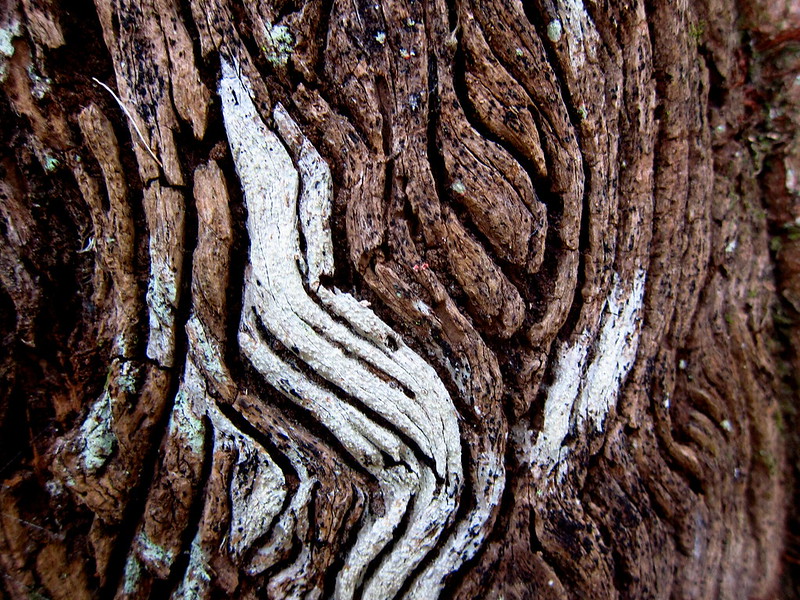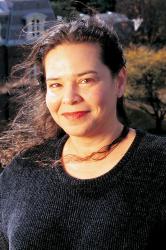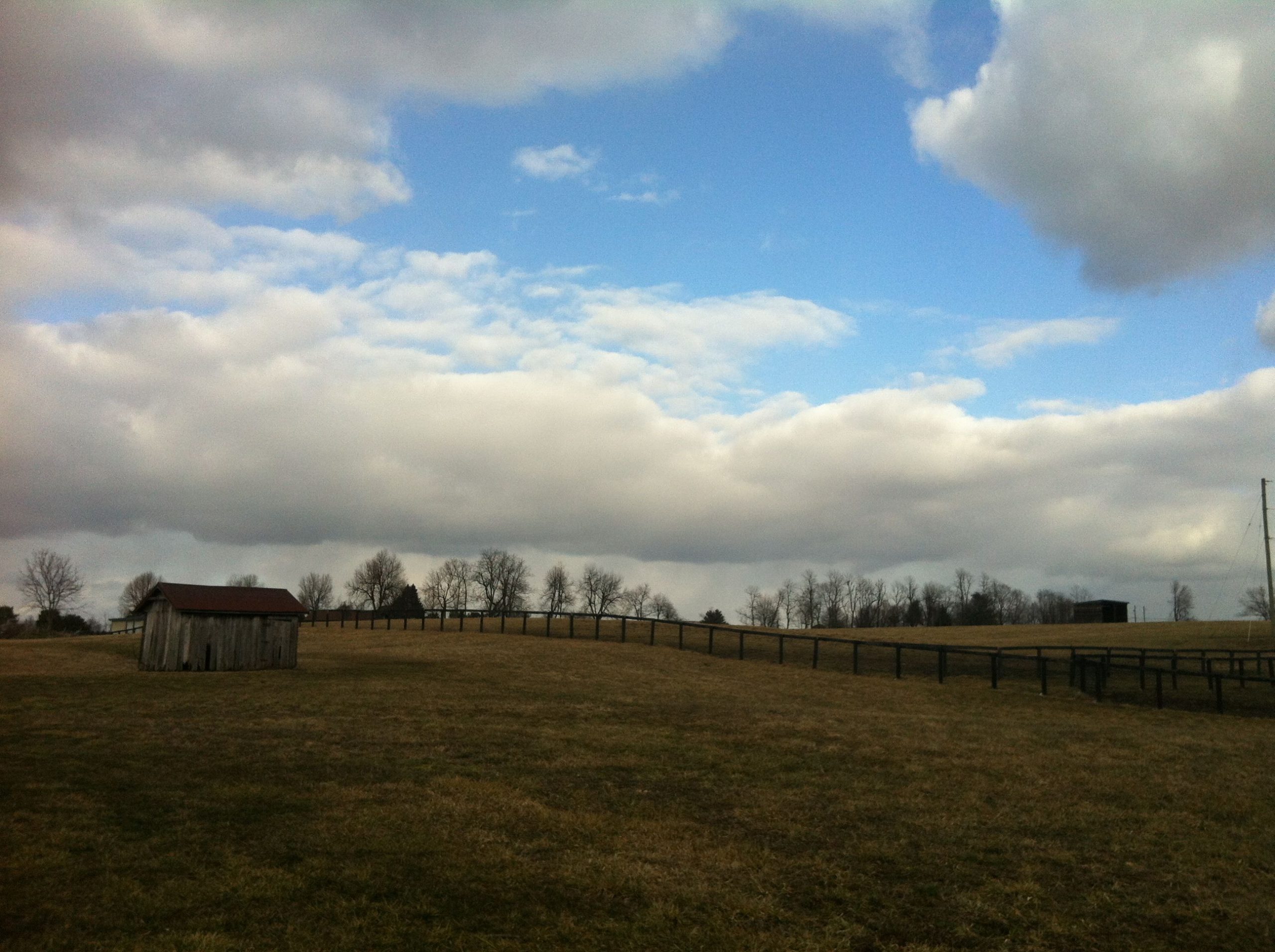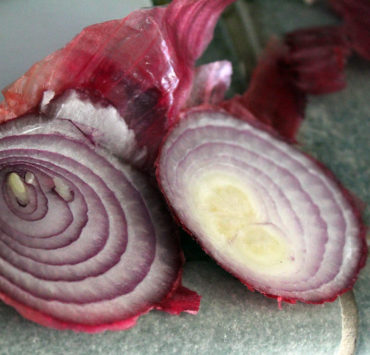
Translation from the Spanish by Lizabeth Paravisini-Gebert
Hermógenes greeted us and asked if he could please have some water. I quickly got up to get him a glass, pushing my way past Sabina. A thought flashed through my mind: she’d been waiting for him, even if they’d never laid eyes on each other before. I went to the kitchen, wary. When I came back I was sure they’d established a connection.
“Allow me to leave you a few Coca Colas,” he said, finishing his glass of water.
“There’s no need,” I replied, adding that there was no refrigerator in which to cool them. Besides, he got what he wanted, my daughter returned his smile. “When you come back you can bring us some sodas,” she said, ignoring my earlier reply. Sabina was my last pregnancy, my last hatchling. She was born light as a lizard, her sucking reflexes so weak I had to squeeze my breasts and let them drip into her mouth, drop by drop. I couldn’t bear to see her completely naked until she was three months old.

When Sabina turned five, Higinio, our father, took her to the town of San Juan to have their photograph taken. He insisted on our mother, Octavia, teaching her to read and write and sharing with her what she knew of numbers. We may have been her siblings, but from the moment we lost our baby teeth, our father beat us to a pulp and forced us into the backbreaking work of planting crops even in the most inhospitable terrain. He made us walk through pitch blackness and terrifying gales. That’s how you hone the instinct to dodge a gash from a knife and obtain the grit to work in any situation.
As a child, Sabina spent her time scrambling up trees. Since she weighed so little, she could climb palm trees or swing from mango branches. It’s not that she was rough, quite the contrary, her arms were as thin as crab pincers and her eyes glittered like pinecones. She was not without her peculiarities, however.
Many restless children get in the habit of eating dirt, but our only sister would hide under the crawl space to munch on flowers. Once Octavia, our mother, had to rush her to the hospital because her belly had swollen and she had convulsions. The doctor thought she’d eaten a toxic plant or seed. Wild manioc? Possum wood? Knee holly? Golden trumpet? No one knew what the girl had eaten. The doctor pumped her stomach. To cure her from the vice of eating flowers, our anxious mother mixed a horrible purgative of mashed bindweed and hibiscus and the next day she made her chew rose petals she’d boiled together with cana stula flowers, the worst tasting thing we knew. Papá didn’t endorse these tactics and made it up to her by secretly giving her candy.
One night, about a month after the incident with the toxic flowers, we dreamt that Sabina was painting the trees in the yard the colors of water while strong winds blew around her. Everything the wind blew, cockroaches or beetles, frogs or scorpions, softened upon hitting the trees and melded into their bark. Octavia and Higinio, from their rocking chairs, watched their pampered daughter’s endeavors with complete indolence and pleasure. We, the brothers who dreamt of her in unison, slept at ease in the dream.
Some time later, in anticipation of Mother’s Day, not understanding then what the consequences would be, we brought Octavia a beautiful lily plant that grew in the coldest part of the mountains. Each flower had at its center something covered with yellow solar dust. Sabina managed to eat two of them before fleeing in terror, her tongue sticking out, as if one had rubbed itchy-itchy root on it. Her lips and palate were covered in bloody sores and her throat throbbed. She cried for hours. This was truly what finally cured her of the habit of munching on flowers under the house.
When she had her first period, we all dreamt she was wading into a stream. Scarlet clouds were mirrored between her legs. In the dream, it was dusk. In the semidarkness, Sabina splashed water on herself as if trying to get rid of some invisible filth. At dawn we, the brothers, stared at each other in silence while we drank our coffee. In a subsequent dream, three days later, we saw Sabina covered in spots, her skin like a sheet of coconut rice, gliding on a palm frond, her arms open to form a cross and her hair blowing in the breeze. Sawdust spouted out of her. We sighed in relief when the dream ended with our sister gliding gracefully into a pond of crystalline water. Soon after that Sabina came down with measles, which after a week got complicated with pneumonia.
“Don’t worry, Mamá. Never mind, Papá. It isn’t really necessary to take her to the hospital,” we assured our parents. And in fact, our sole sister recovered from both illnesses. By then we had become accustomed to catching glimpses of her at the bottom of our dreams, motionless, most of the time. We watched worriedly; we’d wake up exhausted. Fortunately, it happened rarely. On the very day she turned eighteen, we dreamt of an event that chilled the blood in our veins. At dawn, as we sipped our coffee, we glanced at one another in terror. Our hands and lips trembled. We rushed out to work.

Sabina’s complexion revealed some lines, as if traced with a bit of indigo. A soft channel springs from the tip of her nose, lightly dimpling her chin and ending at her navel.

Hermógenes (his name didn’t surprise us), the bottled-soda distributor, came back; of course he came back. Every step, every gesture became a means of marking his honorable intentions towards Sabina. On his third visit he brought our sister a present, which he didn’t give her until he obtained Higinio’s permission to do so. A few months later he visited our home accompanied by his mother. It was a long visit, during which Hermógenes formalized his proposal of marriage, supported by his mother’s exquisite urban amiability. At every point, the woman from Santo Domingo uttered a compliment: “Your kitchen sparkles like gold,” she told Octavia. “One breathes such pure air here.” “So many fruit trees. One has to be a persistent worker to turn a profit from this land.” We held back, silent, not interested in breaching the distance. Higinio smoked his pipe and looked for something to do, proud and intimidated at the same time. At lunchtime, Papá mentioned that some foals had been destroying the corn crop. We all wanted to go with him, to escape, but a look from Octavia (don’t you dare go!) succeeded to stop us in our tracks.
Disheartened, we didn’t know what to do. And it showed. Sabina, however, looked radiant. Despite our long faces, when we returned from work she greeted us with a smile, with a bowl of fresh water and a linen towel on her shoulder. And while she watched us wash our hands and splash our chests, she brought us up to date on sundry domestic events. Sparkles the color of chestnut stirred in her eyes. We asked ourselves inwardly: why the hell does she have to go with that guy with the truck when she has ten men here who adore her?
We kept our watch, what more could we do? We spied on her conversations with her fiancé, hoping for the man to make some mistake. Higinio lost his peace of mind. He didn’t know why, but the instinct of a devoted father spoke to him of something nebulous and strange. The slightest remark would get us reprimanded. Sometimes, when he was having breakfast, his eyes would grow dim with tears.
I asked myself what ill wind had blown Hermógenes our way. What did he know about Sabina? We were the ones who truly knew her. We’d fed her bite by bite and snuggled with her when she’d had a fever as a small child. We’d been there for her in her weakness and had watched her gain in strength, from when it was necessary to hold her little head to keep her upright until her legs grew sturdy and she beat us at races. Each one of us had held her tightly in our arms at bedtime.
“We’re going to live very comfortably,” Hermógenes would tell us, smiling from ear to ear. And looking at us with his friendly eyes, wanting to say: I understand, I understand your brotherly apprehensions, but don’t worry, I’m going to take care of her and protect her. Octavia paid him enough attention for the entire family; she listened carefully to every phrase he uttered and to every allusion to their future. Our mother liked the young man and let him know it. That’s what she led us to believe for months. She was reserved and knew how to hold her emotions under control.

I inquired, seemingly casually, about incidents and cares in Hermógenes’ family. He seemed too pale to me, as if he always felt cold. His lips were purplish—I’d heard that’s the case with people with heart complaints. But he made no mistakes, behaved with propriety and respect, and I couldn’t draw him into any suspicious revelations. His mother was a strong and well-educated woman, we’d confirmed this; his father lived in Venezuela, as did his sisters. The young man had no children outside of marriage, nor had he ever been committed to any hospital. He’d had no trouble with the police. So why did I still feel such a thorn in my heart?
To gain time, I persuaded my daughter that knitting bedspreads, embroidering tablecloths and sewing the clothes she’d wear as a married woman were requirements for good luck in marriage. Hermógenes, somewhat saddened since he’d preferred an early wedding, accepted Higinio’s counterproposal to “give us enough time to prepare for the festivities, since the parents of the bride are responsible for the celebration.”The fiancé couldn’t hide his grief when we raised objections to his taking Sabina to live in the capital. A week before the date set for the wedding, my father died in the countryside near Oviedo, where he’d sought refuge since the times of the dictatorship. I said that Sabina couldn’t get married while our home was in mourning. She replied that she’d never in her life seen her grandfather. It wasn’t like my daughter to contradict me. There was a new delay. With the new agreed upon date upon us, there was nothing left to invent to delay the marriage. After all, one cannot twist fate armed only with a dream.

Sabina’s heat emits winged ants, like a portent of rain. Sabina’s heat moves towards whoever feels cold. Her breasts are like guava pulp. Her back seems made of heart of palm.

Higinio, taciturn, hid behind his bad mood. Mamá struggled against her emotions, but it didn’t stop her from fulfilling her required duties to the letter. She prepared the bath that the bride had to take with zeal. On that day, seven basins of water had been warming in the sun since dawn. Six were filled with spring water, with the following elements added: in the first one there was honey and salt; in the second, bitter lemon; in the third, orange blossoms; in the fourth, camphor; in the fifth, white, red, yellow and pink roses; in the sixth, mint and eucalyptus leaves. The contents of the last basin, in which Sabina was to complete the final rinsing of her body, came from gathering the evening dew in thirty basins during thirty days. The liquid filled only a third of the basin. Octavia herself took charge of the bathing. We followed the operation on the sly, since it was taking place in a room without doors near the main house. We don’t know where our mother got the idea that the rigorous bath would protect her daughter once she abandoned the safety of our home. And what if that dream had been deceptive, a sort of trick against Sabina’s happiness? Octavia, with her many errands and tasks, didn’t leave us any time to think, as if on purpose.
“Everyone should enjoy the party. No one should have a reason to complain about your sister’s wedding,” she said to us. During the celebration, we took great pains to attend to our guests, especially those who’d come from Santo Domingo to accompany Hermógenes. For brief moments we were seized by waves of anxiety that made sweat run down our faces, seeping into our eyes. Papá wasn’t able to overcome his malaise. He moved slowly back and forth like a zombie. The most observant guests were left convinced that he was ill. Not even Octavia could get him out of his taciturn, resigned, and absent state. “It’s just that Sabina is his life, and now she’s going to be hundreds of kilometers away,” Octavia explained to those close to the family.
In the days that followed Sabina’s departure, Octavia received us with the washbowl at hand and a towel over her shoulder so we could get rid of the dust and soil we brought down from the land. We hurriedly splashed water on our faces so no tear could betray our weakness.
Higinio’s joints were hurting. Lethargic and taciturn, every day he came up with a fresh reason to stay home; a man who just a few weeks before had wielded a machete vigorously, like any of us. After a while, he didn’t even bother with an excuse. He’d remain in his rocking chair, on the threshold of the living room, staring all day at a single indeterminate point. Three months had gone by since the wedding and Sabina’s life seemed satisfactory, to judge by the few bits of news that reached us. Hermógenes had found employment in Santo Domingo, so he no longer had to travel. He could be near his wife daily.
The surge of visions that terrified her nine brothers the night after the wedding had been perhaps the result of our love for her, or so we thought. Our very natures quivered with doubt, nonetheless, since after that dreadful dream we’d never again dreamt of Sabina. And what had taken hold of our father? He didn’t dream like us, but he was behaving as if a bad portent were sucking his life’s blood. Such lugubriousness could cripple a man.

Hermógenes thought that the news would please me: Sabina was pregnant. This lifted the spirits of the men but made me break out in cold sweats and headaches, despite my burning desire to have a grandchild hanging onto my skirts. Although they hadn’t invited me to the home they’d set up together, I prepared a trip to Santo Domingo. I found my daughter looking well: her hair smooth and her cheeks rosy. The couple had installed themselves in a spacious room—a corner of which had been fitted out as a bath—attached to his mother’ house and with a door to the street. They had everything that was necessary and even certain luxuries, like a ceiling fan, a blender, and a color television.

Sabina had ankles like nickel coins. Her arms evoked the plumes of the owering cashew tree…

Our attention, by force or fate, displaced itself towards our father, for whom there hadn’t been a moment of peace since the departure of his favorite, the home’s fledgling, the apple of his eye. As the days went by, he became obsessed with the idea that Sabina had been wrenched from our house, that she’d never again be allowed to be near us.
“Who has done this?,” Mamá asked him. He shook his head, as if expecting an event that would rend him in two like a bolt of lightning does to a palm tree.
Octavia spoiled him by preparing his favorite dishes, chenchén and cashews in syrup. Higinio picked at the cashews so as not to offend her. We got him new fighting cocks. Why on earth, since he barely took care of the ones he already had? Finally, at the end of Sabina’s seventh month of pregnancy, we dusted off the accordion and the tambora and began to play. Our father had taught us how to play musical instruments, especially Sabina, who had learned from him exactly how to draw out the accordion’s rhythmic cadences. Higinio wept openly.
We decided to organize a party in honor of San Miguel, the patron of our region, in gratitude for that year’s extraordinary bean harvest at our farm in the mountains and for the excellent prices we’d gotten at the market. We sent our brother-in-law a message, so they wouldn’t miss the event. The same conduit brought us back word that Sabina was showing signs of placenta previa and travel was impossible. With a knot in our throats, we kept the information from Higinio and Octavia and continued with the preparations for the party.
The afternoon of the dance, Papa installed his rocking chair under a mango tree, from where no one could get him to budge. In the middle of the rejoicing, dazed by the rum, the music, the good-looking girls, we got the news. They brought the telegram from the barracks. It was addressed to Higinio and they’d only give it to him. Our father, with trembling ngers, called out weakly: “Octavia! Octavia!”
I, covered in a cold and sticky sweat, went to look for my mother in the kitchen. e message said: “Sabina deadly ill. Leave for Santo Domingo at once. Hermógenes.”
We didn’t arrive in time to see her alive one last time.
The events had unfolded very quickly. That Saturday, after lunch, Hermógenes had gone out towards Villa Juana to buy some tools. Sabina lay down in bed to see a Cantin as movie. When it ended, a variety show had followed; she’d fallen asleep. She was startled out of her sleep by an awful squeal. Sleepy, bewildered by the heat and the surprise, she realized that the noise was coming from the fan, the television and the refrigerator. She got up and went to unplug them. At the first contact with the sockets a tremendous force had blown her against the wall. A short while later her mother-in-law had come, concerned because the refrigerator had blown its fuses and she’d heard noises from the other room. She called out to Sabina. When she got no reply, she assumed she’d gone out with her husband. She glimpsed through the half-open jalousie and con rmed that there was no one in the room. It was Hermógenes who later found Sabina by the edge of the rustic cement bathtub. Her small face was bluish and her arms were tangled on the shower curtain, which was half torn down, as if she’d been trying to get up.
He never again wished to enter the room where his brief marriage was consummated and his wife had died.
To this day, the altar that Octavia installed in a corner of our living room never lacks a candle, carnations for Sabina. From time to time, we add lilies that we bring from the coolest zone in the mountains.
One day, we had a dream during the earliest stages of sleep. We saw our sister wearing a gold skirt and a cream-coloured blouse. Her right eye had turned black, while the other had kept its greenish chestnut color. She was letting us know that she was living at 152 Sebastián Mará Street in Abura. We have no idea if this place truly exists or where it could be, but since then Higinio has started to slowly recover his energy and our home is lling with activity and hope. Needless to say, we have started dreaming of Sabina again.

Lizabeth Paravisini-Gebert works in the fields of literature, ecocriticism and environmental history, art history, and cultural studies. She specializes in the multidisciplinary study of the Caribbean. She is based in the Hispanic Studies Department at Vassar College. She is currently working on a new book project: The Amazon Parrots of the Caribbean: An Environmental Biography and on a translation of Dominican author Pedro Vergés’ 1982 novel, Solo cenizas hallarás with her friend and colleague Margarite Fernández Olmos.







